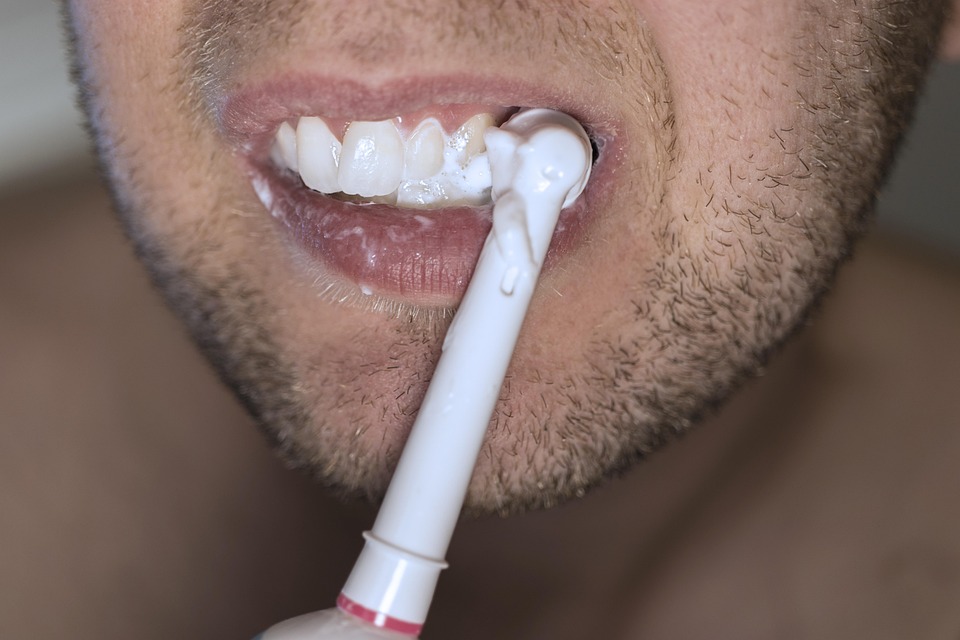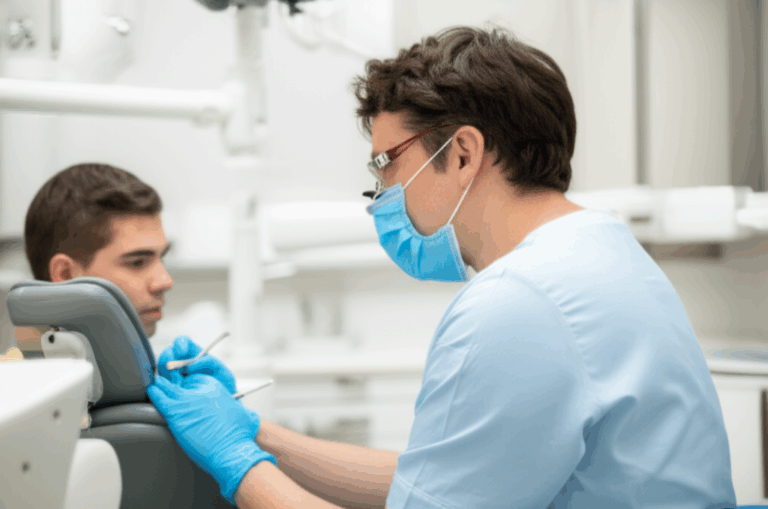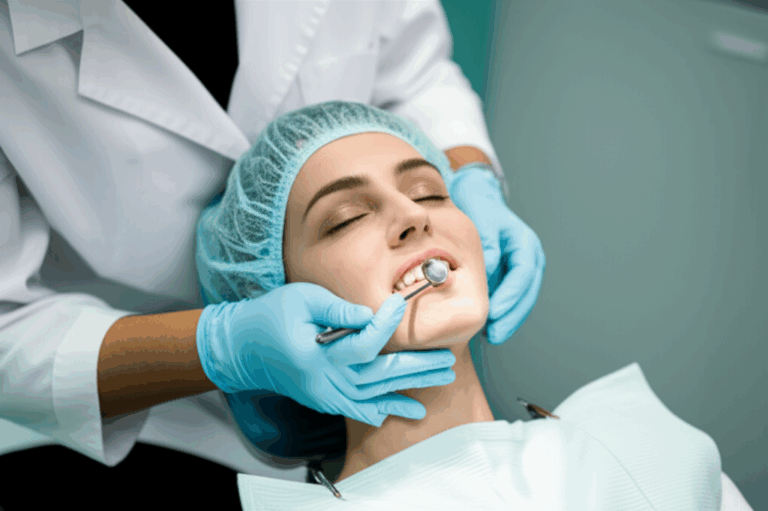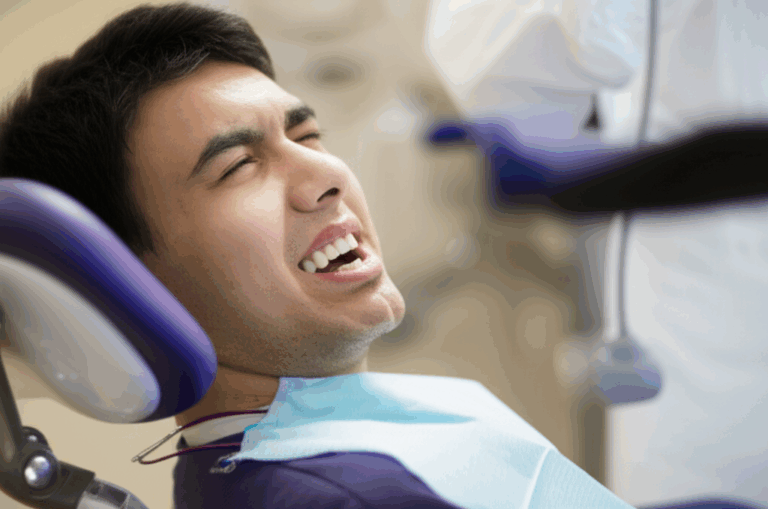
Can Dental Work Cause Health Problems
If you’ve ever sat in a dentist’s chair and thought, “Is all this stuff okay for me?” you’re not the only one. These days, dentists do more than ever before, so lots of people wonder: can dental work make you sick? In this post, I’ll use real-life stories and easy science to explain what helps, what might be risky, and how you can keep your teeth—and the rest of you—doing well. Even if going to the dentist doesn’t bother you, you should read this before your next visit!
Outline
- What Are Common Dental Procedures?
- Can Dental Fillings Harm Your Body?
- Do Crowns and Bridges Cause Problems?
- Is There a Risk from Root Canals?
- Could Dental Implants Hurt Your Health?
- Are Materials from a china dental lab Safe?
- Can Zirconia and Emax Dental Labs Be Trusted?
- Should You Worry About 3d dental lab Products?
- Have People Really Gotten Sick from Dental Work?
- How Can You Protect Your Health during dental care?
- What Questions Should You Ask Your Dentist?
- Are There Safe Alternatives to Traditional Dental Materials?
- Key Takeaways: What Does All This Mean for Me?
What Are Common Dental Procedures?
When I started to really look after my teeth, I didn’t know dentists could do so many different things. Fillings, crowns, bridges, implants, root canals, and even things to make your teeth look better, like veneers—dentists today have more ways to fix your teeth than ever before.
Whenever you open your mouth at the dentist, something new and maybe odd might be put in. For example, a small filling may use a bunch of different metals or chemicals, while a bridge can use both metal and ceramic to help your teeth. Seeing a dentist today isn’t just about cleaning and flossing. It’s about trusting what your dentist puts in your mouth.
Most people end up needing dental work once or more in their life. Over the years, almost everyone gets a filling or a crown. These things stay in your mouth for a long time—not days, but years. If something is wrong, the problems can pile up quickly, and it might affect more than just your teeth.
Can Dental Fillings Harm Your Body?
Let’s talk about something lots of people worry about: fillings. Most of us will need one at one point. The old kind, called amalgam, uses metals including mercury. Hearing “mercury” made me nervous. Isn’t mercury bad for you? The FDA says most people can have these fillings with no problem, but some tests show tiny amounts of mercury can get out.
For almost everyone, these tiny bits probably don’t cause trouble. But for some people—like those who have metal allergies or certain illnesses—fillings might cause problems. A few folks say they get headaches or brain fog after a filling. Dentists often use white (composite) fillings now, but even those are made from plastics. If your filling comes from another country or a place with fewer rules, the risk might be higher.
Some people’s bodies don’t like the metals or chemicals inside fillings. They might get mouth sores, a weird taste, or other problems. If you’re worried, ask your dentist where the fillings are from and if they check for allergies. Don’t just let them put anything in your mouth. You should always know what’s being used.
Do Crowns and Bridges Cause Problems?
At first, I thought crowns sounded cool, like crowns on a king’s head. Then, I learned some have a mix of metals (like nickel or chromium) along with porcelain. A friend of mine got a crown and couldn’t stop scratching her lips. She was allergic to the metal inside it!
Crowns and bridges sometimes make your gums sore or hurt if they don’t fit well. Bad fits can let germs hide, which may cause gum disease. Also, if the place where your crown was made uses cheap or low-quality metals, that’s not good.
If your dentist uses a trusted zirconia lab or emax dental lab, it’s usually better. Zirconia and Emax are special kinds of ceramics that don’t often cause allergies and are tough. But price and quality are different from one dentist or lab to the next.
Is There a Risk from Root Canals?
Root canals don’t have a great reputation, but did you know their safety is still talked about? With a root canal, the dentist cleans out the inside of your bad tooth and closes it up. If some germs get left behind in tiny spaces, they could keep causing trouble without any pain for years.
This kind of hidden infection can cause swelling in your body for a long time. Some people believe that bad germs from a root canal can move into your blood and maybe even hurt your heart or your body’s defenses. I’ve even met people who say they were always tired or had jaw pain after a root canal.
Still, for most people, root canals help—they stop toothaches and keep you from getting pus pockets. Things usually only go wrong if the job isn’t done right or the back teeth have tricky roots that are hard to clean. Going for regular checkups and X-rays can catch small problems early.
Could Dental Implants Hurt Your Health?
Dental implants can change lives for people missing teeth, but they don’t always work perfectly. The main material is titanium. In rare cases, someone could be allergic or sensitive to titanium. Signs might be ongoing jaw pain, swelling, or feeling tired all the time.
If the implant isn’t put in right, it can hit a nerve or your sinuses, which can hurt for a long time. Some research says that germs can stick to implants more than real teeth, which may mean gum infections that don’t go away.
But it’s not all bad. Most people never have a problem with good implants, especially when skilled dentists use trusted lab materials. If you’re worried, ask to get checked for allergies or talk about other options, like ceramic implants. Good 3D dental lab products can be much safer and fit better.
Are Materials from a China Dental Lab Safe?
A lot of dental offices try to cut costs by getting crowns, bridges, or dentures made in a china dental lab. You probably never even hear about it. It’s cheaper—but it may not be better for your health.
Sometimes, China dental labs use lower-quality metals or untested ceramics. If the rules aren’t followed, you might get a crown with dangerous metals or even lead. Still, plenty of good china dental labs make safe stuff for American and European dentists.
You can stay safe by asking your dentist where things are made. Ask for a paper that proves what the material is. It’s your mouth! If you wouldn’t eat food without knowing what’s in it, don’t let someone put just anything in your mouth, either.
Can Zirconia and Emax Dental Labs Be Trusted?
Zirconia and Emax are popular in dental care now. These are top picks for natural-looking crowns that don’t break easily. But can you always trust products from a zirconia lab or emax dental lab?
Most of the time, yes. Usually, these materials are made in labs with rules and checks in place. They have no metal, so there are less allergies, and they’re strong enough for chewing. Problems can happen if a lab cuts corners or uses recycled stuff. Rarely, this can make crowns break or let out bad chemicals.
To be sure, ask your dentist which zirconia or emax dental lab they use and if there are good checks for quality. Good labs will tell you; if a lab refuses, that’s a bad sign.
Should You Worry About 3D Dental Lab Products?
When digital dentistry started, people got excited. 3D dental labs can make crowns and bridges faster and fit better. But does new technology always mean it’s safer?
Not always. 3D dental labs can reduce mistakes, but the end product depends on the digital file, the way the machines are set up, and what materials are used. If a cheap or old 3D printer is used, you could get a weak or badly fitting crown. Sometimes, poor-quality plastics or resins might irritate your mouth.
On the bright side, most 3D dental labs now use materials cleared by the FDA and follow good rules. If you want the best, go to a dentist with up-to-date machines and staff who know what they’re doing. Tech is only as good as the people using it.
Have People Really Gotten Sick from Dental Work?
Here’s a true story. Someone I know got tired and broke out in a rash after some bridges from a cheap lab. She had to visit two specialists before anyone figured out it was the nickel in her dental work that made her sick.
She’s not alone. There are lots of stories online from people who blame fillings or implants for making them feel bad, have headaches, or feel anxious. Most of these stories don’t have solid proof, but some patterns do show up.
Studies show dental materials can, though rarely, let metals, plastics, or chemicals into your spit. Whether you react depends on your body. If you’re sensitive or allergic, even a little can be a big deal.
Still, don’t panic. Most dental work is safe, especially if you pick a dentist who uses good labs and cares about your health history.
How Can You Protect Your Health during Dental Care?
First, don’t be afraid to speak up. Tell your dentist about all allergies, sicknesses, or things you’ve reacted to before. Ask where the stuff comes from. Good dentists like patients who ask questions.
Second, if you ever feel sick, notice a rash, or taste metal after dental work, tell your dentist right away. Sometimes, just changing a filling or crown solves the problem. A fast fix can turn a nightmare into a relief.
Lastly, keep brushing, flossing, and seeing the dentist for checkups. Healthy teeth need less work, and less work means fewer chances of trouble.
What Questions Should You Ask Your Dentist?
Not sure what to ask? Here are questions I always bring up before getting dental work:
- What is this filling, crown, or implant made of?
- Where was it made—a local lab, an emax dental lab, a zirconia lab, or a china dental lab?
- Do you have proof for these materials?
- Can I be tested for allergies to dental stuff first?
- How will you make sure the fit is right?
Don’t worry about asking these. The answers can mean years of feeling good instead of months of feeling bad.
Are There Safe Alternatives to Traditional Dental Materials?
If you’re someone who gets sick from metals, plastics, or ceramics, do you have options? Yes! Dentists can use things that don’t have any metal or all-ceramic crowns from good 3D dental labs. Zirconia and Emax products also work well for people who are sensitive.
Some dentists, called holistic or “biological,” have extra options, too. They test to see if you react to things and use only stuff that doesn’t cause problems. These places may cost more, but it’s worth it if you have a history of reactions.
Always talk about your choices before you get treated. You wouldn’t get shoes without trying them on—and your teeth need something that fits you just right!
Key Takeaways: What Does All This Mean for Me?
Before I wrap up, here’s what you should remember about dental work and your health:
- Most dental work is safe, but troubles can happen if you have allergies or if cheap stuff is used.
- Old fillings have mercury, but new white ones might have plastics or other chemicals.
- Crowns from a good zirconia lab or emax dental lab are solid picks, but always double-check if they come from a china dental lab.
- 3D dental labs help things fit better, but only if good materials and people are used.
- Always tell your dentist about allergies and concerns before anything is put in your mouth. Ask questions and get proof.
- If you feel weird after dental work, go back to the dentist fast.
- Holistic dentists can often give you even safer, more personal options if you need them.
- Brush, floss, and go for checkups often so you need less dental work and lower your risk for problems.
Taking charge of your dental care isn’t difficult. If you do, it could save your teeth—and maybe your health—down the road.
Summary of Key Points
- Tell your dentist about all allergies or health issues
- Always ask where dental materials come from
- Prefer crowns and fillings from trusted zirconia, emax, or 3D dental labs
- Be careful about products from unregulated china dental labs
- Pay attention to any strange symptoms after dental work
- Practice good dental care to prevent problems before they start
Remember, your mouth is the doorway to the rest of your body. Treat it with care, keep asking questions, and never be afraid to learn more!








